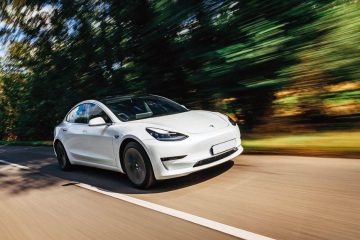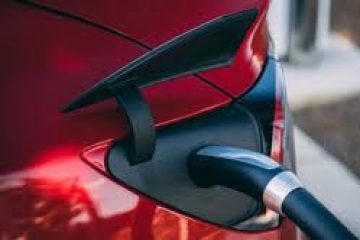Fisker gets ready to file for bankruptcy

Last month, the firm issued a going-concern warning due to its struggles in increasing sales in the face of stagnating demand for electric vehicles in the US.
Those in the know say that Fisker, a struggling electric vehicle startup, has retained restructuring experts in preparation for a potential bankruptcy filing.
Those in the know say that financial adviser FTI Consulting and law firm Davis Polk were retained by Fisker to assist with a possible file, following the company’s recent warning that it would run out of funds this year. In addition to more than $1 billion in debt, the automaker disclosed $273 million in sales for the past year last month.
In a so-called going-concern warning, Fisker expressed “substantial doubt” on its capacity to remain in business last month. The business announced that it was in talks to secure more funding from investors and was also seeking a new American manufacturing partner.
No comment was given by Fisker or FTI Consulting, and Davis Polk did not respond right away.
According to a regulatory filing, the Manhattan Beach, California-based company had to postpone the publishing of its entire financial results for last year in late February due to a shortage of qualified accountants.
At the turn of the century, Fisker joined a group of once dominant electric vehicle (EV) startups that went public. Many of these companies had used special-purpose acquisition companies (SPACs) to speed up their market debuts. Along with their ascent, there was a flurry of interest from investors in startups that might be able to compete with Tesla in the car market.
Instead, the businesses have grappled with the challenges of mass production and, more lately, the slowing demand for electric vehicles among American consumers.
In June, as concerns about a halt in sales growth began to surface, Fisker sent its first automobiles to customers in the United States. Last year, the business dropped prices and twice reduced its demand projection, claiming “competitive realities.”
Henrik Fisker, a former designer for BMW and Aston Martin, started Fisker Motor firm. If the firm applies for bankruptcy protection, it will be the second time Fisker has gone bankrupt. In 2013, the initial firm, Fisker Automotive, declared bankruptcy.
After going public in 2020 through a special-purpose vehicle merger, Fisker’s share price has dropped more than 97%, reaching 32 cents at Wednesday’s close. Delisting from the New York Stock Exchange is a real possibility because the company’s shares have been trading below $1 for a significant portion of the year.
Currently, Henrik Fisker and Geeta Gupta-Fisker are leading the charge at Fisker, and they have come clean about their intention to question fundamental principles in the automotive industry. Fisker contracted with contract manufacturer Magna Steyr of Graz, Austria, to produce the Ocean SUV—the company’s only vehicle—rather than constructing a facility and hiring employees.
By reducing operational expenses, the plan aimed to help Henrik Fisker’s second company avoid many of the problems that doomed his first.
However, Fisker continued to encounter difficulties practically immediately after it started manufacturing automobiles. The company encountered problems transporting its Ocean SUV from an Austrian manufacturer to clients in the United States. The business reported problems with regulatory approvals, malfunctioning components, and executive churn, particularly in the finance department.
After realizing it would be too costly and time-consuming to establish its own network of stores and service centers, Fisker said at the beginning of the year that it was abandoning a direct-to-consumer sales model inspired by Tesla in favor of conventional dealerships.
Last month, Fisker said that it will be laying off 15% of its employees, primarily in the service and retail-sales departments.
Customer claims of the Ocean rolling away or losing braking performance have prompted the National Highway Traffic Safety Administration to investigate potential quality faults. A software update fixed the brake problem, according to Fisker, and the company is helping the NHTSA with their inquiry.
Fisker announced this month that it manufactured slightly more than 10,000 automobiles last year, falling short of its production goal of 13,000 units. Customers received approximately 4,900 automobiles from the company.
The slow growth in sales is partially attributable, according to Fisker executives, to the complexity of the direct-sales system.
The company’s employees have been diligently trying to sell the approximately 5,000 automobiles it now owns, which are valued at around $500 million. With the help of new franchise dealerships, Fisker aims to sell all of the vehicles by the end of March.
Meanwhile, Fisker’s capacity to negotiate a new contract manufacturing arrangement in the US is crucial to the introduction of their future vehicles, which include a pickup truck and a $30,000 crossover.
A “large carmaker” is reportedly in talks with startup Fisker about a possible investment and collaborative manufacturing deal that would enable Fisker to manufacture new cars in the United States.
Last month, Fisker issued a going concern warning, stating that it may have to reduce expenditure on future vehicles and production plans if it couldn’t get more capital.







